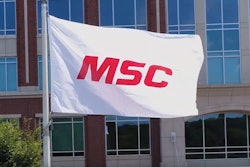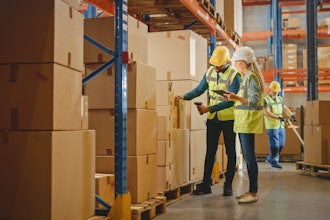WILLIAMSPORT, Pa. (AP) — Starting in January, Daniel Ertel's wastewater processing plant in Williamsport will start churning out commodities: Oil. Methanol. Sodium chloride.
Eureka Resources, where Mr. Ertel is CEO, will be operating its newly constructed crystallizer and a methanol recovery system at plants in Williamsport and Towanda. They'll take in oil and gas production water and, after distilling it as they do now, the plants will then be able to separate more metals from the concentrated brine that would otherwise be trucked to Ohio and injected into a deep well.
"In and of themselves, they're not damaging," Mr. Ertel said of the constituents in production brines. "They make water a waste, but when they're extracted, they're things we use every day."
The oil separated from the water will be sold to wholesalers, he said. The methanol will be sold right back to the oil and gas producers who use it as a dehydrator and an antifreeze agent. Mr. Ertel is in the middle of negotiations with several manufacturers and distributors for the sodium chloride, which will be used as an industrial salt for fertilizers or animal feed. There are many other constituents in the brine that have an active trading market.
"The long-range goal is to go (after) calcium, magnesium, strontium, barium, lithium," Mr. Ertel said.
But right now, Eureka is focused on taking it "one day and one element at a time."
It cost more than $25 million to build the first crystallizer so Mr. Ertel has to figure out how profitable it is to sell industrial salt. Once that business is going, he'll have to decide if it's more economical to build more crystallizers and focus on sodium chloride, or add on additional processes to extract the other salts and metals in the waste stream.
Several other companies interested in slicing Marcellus waste products into commodities have hit financing road blocks over the past few years.
Tim Keister, chief chemist and president of Brockway-based ProChemTech International Inc., said it has been five years since he started "messing with Marcellus wastewater."
He says he could build a plant that would extract barium from oil and gas brine and make a profit of $35,000 per day without charging gas companies a dime. If there's a per-gallon treatment charge, the profit rises significantly.
"I'm sitting here saying why don't we have people lining up to build these things?" Mr. Keister said.
Over the past two years, Mr. Keister said he had been involved with several major oil and gas companies who showed interest in such a plant, but ultimately backed out. He has met with three private equity firms and talked with all the wastewater processing plants that take in this kind of water.
"This time we decided to just do it ourselves," he said.
A few months ago, ProChemTech spun off a company called Marcellus Resource Recovery Inc. and is looking for investors to raise $25 million to build a plant.
ProChemTech's process first removes barium and radium and turns them into barium sulfate, a dense and inert material that's used in products such as compound rubber, glass and drilling mud.
The U.S. Geological Survey estimates that about 75 percent of barium sulfate used in the U.S. comes from China, where it is mined.
The process then extracts sodium chloride and calcium chloride, and could potentially tackle strontium, bromide and lithium in the future.
ProChemTech already makes equipment that produces bromide.
"We've already run it through," he said. "We can split the bromide out pretty easily. Whether it's economic, we don't know," Mr. Keister said.
Bromide is a particular concern for waterways with public intakes because, when mixed with chlorine, it forms a dangerous disinfection byproducts. The element was elevated in the rivers of southwestern Pennsylvania after Marcellus drilling began but before the industry was asked to stop sending wastewater to plants that discharge it in 2011.
That turning point largely eliminated the need to clean wastewater any more than is necessary for future fracking, deep well injection or landfilling of concentrated brine.
Fredrick Douglas, president of Cosmos Technologies on the North Side, noticed the shift. At first, he focused on technology that could selectively recover barium from the waste stream, figuring he could sell it.
But in talking with oil and gas producers after 2011, he noticed that they didn't much care what happened to the wastewater as long as it was safely handled.
Instead, Mr. Douglas has found a new concern for which he's pursuing a patent — separating oil from the wastewater stream.
Mr. Ertel said Eureka built its plants with company money and so was more insulated from the waffling of oil and gas producers. Whether a plant extracts sodium chloride or leaves it in the brine, "it doesn't affect their business model," Mr. Ertel said of the producers.
But it affects their water treatment prices, he added.
"Our biggest cost is their biggest cost. When we make brine, we have to dispose of the same place they do -- in Ohio. If you turn the whole waste stream into a usable product, you've eliminated your disposal costs."
___
Online: https://bit.ly/1gvfJkP
___
Information from: Pittsburgh Post-Gazette, https://www.post-gazette.com/






















